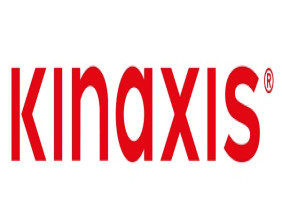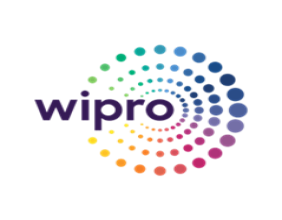Due to panic-buying prompted by the Covid-19, the British supermarkets have imposed limits on essential items. Across the globe, hygiene and cleansing products sale have gone up, as the awareness for the Coronavirus infection has increased. People have started avoiding mass gatherings and public places and are stockpiling the essentials items and are limiting themselves from going out.
In view of the panic and general tendency of hoarding because of fear, most of the supermarkets in the United Kingdom have put restrictions on the quantity of the sale of essential items, on categories such as food, medicines and hygiene products, to make sure everyone get access to these essential items. The purchase limits are imposed on various items such as soaps & toiletries, food items like pasta as well as medicines for children.
This sudden buying behaviour was observed soon after the Public Health England asked the people to be prepared for self-isolation for at least 15 days in case an emergency is declared. However, as per the government, people should not panic at all.
The UK Supermarket industry is worth more than £150 billion and is very competitive. The products in the supermarkets are similar in each category; hence customers can easily switch from one product to another. The bargaining power of customers (buyers) is quite weak, which is a good sign for the companies.
Supermarkets sell all branded and unbranded products in most of the categories. These suppliers are both domestic and international. Hence, supermarkets have a variety of suppliers to negotiate with them and be more profitable. Brands like Tesco (market leader), Aldi, Asda, Sainsburyâs have led the supermarket industry in the United Kingdom.
Small convenience stores, off licences shops, and organic products shops are also constituents of the supermarket industry in the United Kingdom.
Nowadays, technology is making shopping more convenient for customers. Most of the stores have started online operations. Also, shopping marts have started capturing data in both offline and online models to analyse shopping trends and increase customer engagement.
Furthermore, social e-commerce has increased customer engagement manifolds. It is also a preferred mode for marketers as people spend a considerable amount of their time on these platforms by following celebrities and they can get a lot of data about the users to find their potential customers. Maybe in the forthcoming years, we might also see blockchain and data analytics used in identifying and targeting customers.
Tesco Plc (LON:TSCO), a market leader in the UKâs supermarket industry, has implemented rationing on essential items. The company has almost stocked out of its self-branded tinned tomatoes and pasta. The company has imposed limits on items which have high demand. These items include bleach, anti-bacterial wipes, cleansing solutions, water, medicines, tinned food items and other foods with long shelf life. These limits are implemented on both online and offline business models. The intention behind such a move by the company is to provide access to the essentials for everyone.
Tesco Plc is a United Kingdom-based leading retailer company, with 450 thousand workforce. The company serve millions of clients every week through stores as well as online space. It mainly operates as a retailer of grocery products. The group is differentiated into several businesses, namely Tesco UK & ROI, Tesco Bank, Booker, Tesco Czech Republic, Tesco Hungary, Tesco Poland, Tesco Slovakia, Tesco Lotus, and Tesco Malaysia.
On 09th March 2020, at the time of writing (before market close, GMT 02:20 PM), Tesco Plcâs shares were trading at GBX 240.50, which remained nearly flat against its previous day closing price. Stock's 52 weeks High and Low is GBX 260.40 /GBX 210.70. At the time of writing, the share was trading 14.14% higher than its 52w low and 7.64% lower than its 52w High. Along with an annual dividend yield of 2.81 per cent, the beta of the company stood at 0.93, reflecting slightly lesser volatility as compared to the benchmark index. The total market capitalisation of the company was recorded at £23.41 billion.
Most of the supermarkets are imposing limits on hygiene-related, cleansing and anti-bacterial products for their buyers. According to the media reports, the online supermarket, Ocado Group Plc (LON:OCDO), imposed a limit on toilet paper rolls. Ocado Group Plc is the United Kingdom based consumer services company that is engaged in the business of online groceries retailing. The companyâs objectives are to build a wholesome online shopping business, through the online infrastructure capabilities by designing and developing their own Intellectual Property (IP) solutions. The companyâs solution includes the Ocado Smart Platform which is available to customers as a website or a mobile app which allows them to place an order, and then the company fulfil the order through its well-networked distribution systems.
People across the world have pushed the panic button. Recently, a video surfaced on the social media platforms, which showed a couple of women entering an altercation over toilet paper rolls in an Australian supermarket. Till date, no full-proof cure has been found for this deadly pandemic. Only prevention methods are being communicated to the public via various media channels. In the United Kingdom, more than 270 people are reportedly found to be infected with Covid-19.
The online orders are getting delayed because of the shortages. Products such as masks, Hand-sanitisers, and liquid soaps were selling at a high premium price in comparison to their listed prices. The whole idea about this approach is to make products available to everyone. Supermarkets are trying really hard to boost their supply chains and maintain enough inventory levels.
On 09th March 2020, at the time of writing (before market close, GMT 02:16 PM), Ocado Group Plcâs shares were trading at GBX 1,058.50, down by 5.66 per cent against its previous day closing price. Stock's 52 weeks High and Low is GBX 1,440.50 /GBX 996.92. At the time of writing, the share was trading 6.18% higher than its 52w low and 26.52% lower than its 52w High. The beta of the company stood at 1.27, which means that in comparison with the benchmark index, the stock was significantly higher in volatility. The total market capitalisation of the company was recorded at £7.82 billion.
Comparative Price chart: Tesco & Ocado vs FTSE 100 index)

(Source: Thomson Reuters)




